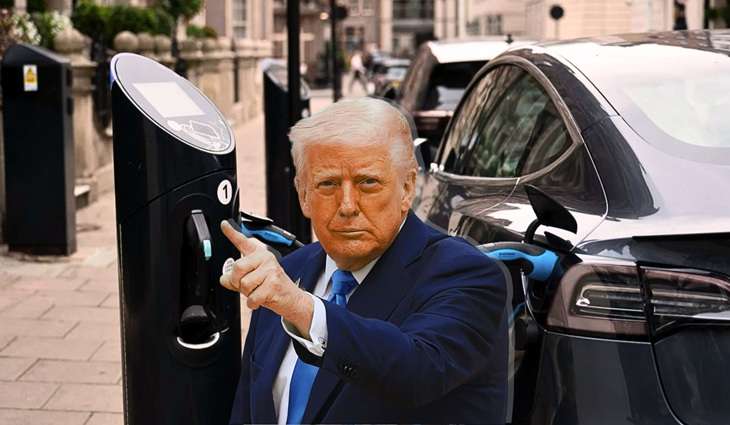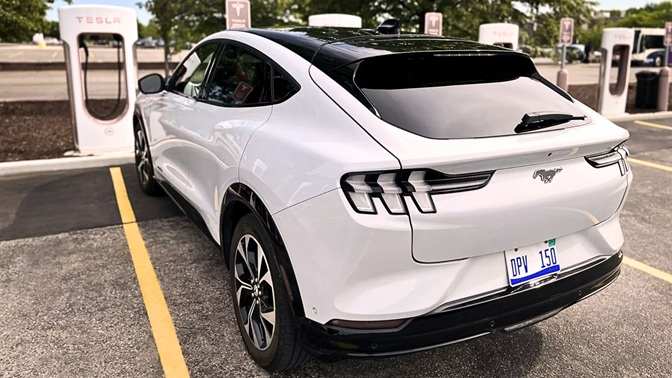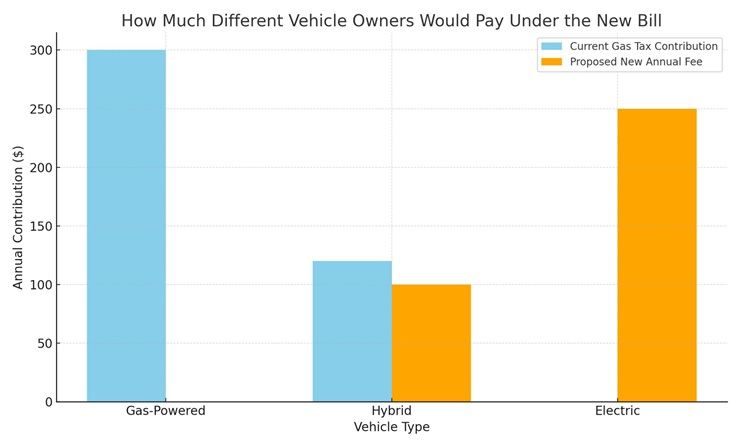In a dramatic and lengthy session, the U.S. House of Representatives passed a major piece of legislation — unofficially dubbed Donald Trump’s “Big Beautiful Bill.” While it still needs approval from the Senate before it becomes law, the proposal has already stirred up intense debate, especially among electric and hybrid vehicle owners. So, what’s the big deal? The bill introduces new registration fees that would specifically target EV and hybrid drivers. And if it passes in its current form, the cost of going green may come with a bigger price tag than many expected.

Under the bill, New Annual Fees for hybrid and electric vehicle (EV) owners would be required to pay extra annual fees: Hybrid drivers: $100 additional fee and EV drivers: $250 additional fee. That’s on top of existing registration costs in most states. The goal? To make EVs and hybrids contribute their “fair share” toward the upkeep of America’s roads — an expense that has traditionally been covered by gas taxes.
Right now, America’s crumbling infrastructure — highways, bridges, and tunnels — is funded largely by a federal gas tax, currently set at $0.18 per gallon. But as more drivers switch to hybrids and fully electric cars, gas consumption drops, and with it, funding for road repairs. Here’s where the problem lies: EVs use little or no gas, so they don’t pay into the gas tax system. Hybrids use less fuel, meaning they contribute less than traditional gas vehicles. Heavier vehicles, which EVs and hybrids often are, cause more road wear — yet they’ve paid less to maintain them.
This has led critics to label EV and hybrid owners as “freeloaders” — enjoying the roads without helping pay for them. While it’s easy to point fingers at modern vehicles, the truth is the Highway Trust Fund — the main source of federal infrastructure money — has been underfunded for years. It hasn’t received meaningful reform since 2021, and even then, it was a stopgap.
In fact, the fund racks up tens of billions in debt each year, and the core reason isn’t just EVs — it’s a funding model that hasn’t been updated in decades: The gas tax is not indexed to inflation, so its buying power has eroded over time. Road maintenance costs have skyrocketed, while tax revenue has barely moved. And now, the rise of EVs is revealing just how flawed the system has always been. While the new bill tries to address this funding gap, many argue it’s swinging the pendulum too far. If passed as-is, EV drivers could end up paying more than gas-powered car owners, even though they produce zero emissions and are part of the clean energy transition.

Some critics say the bill could discourage EV adoption just as the market is gaining momentum. Others argue it’s only fair for everyone to help maintain the roads they drive on. But no matter which side you’re on, one thing is clear: this is a big shift in policy, and it’s happening fast. While the bill has cleared the House, it still needs to pass the Senate, where Republican leaders may propose changes. The final version could see adjustments to the fees, or a broader overhaul of how road funding is handled altogether. So for now, nothing is set in stone — but this is a conversation that’s not going away.

- A new infrastructure bill proposes annual fees for EV and hybrid owners: $250 for EVs, $100 for hybrids.
- These fees aim to fill the funding gap in the Highway Trust Fund, which is losing money due to lower gas tax revenue.
- Critics say the bill could unfairly target eco-conscious drivers and harm EV adoption.
- Supporters argue it’s a fair contribution to maintain U.S. roads as fuel usage declines.
- The bill still needs Senate approval and could undergo significant changes before becoming law.
This bill reflects a broader tension in America’s transition to cleaner transportation. As we move away from fossil fuels, our policies and infrastructure need to keep up. Whether you drive a gas guzzler or a zero-emissions EV, this debate will shape the future of how we pay for the roads beneath our wheels.
Related Post
